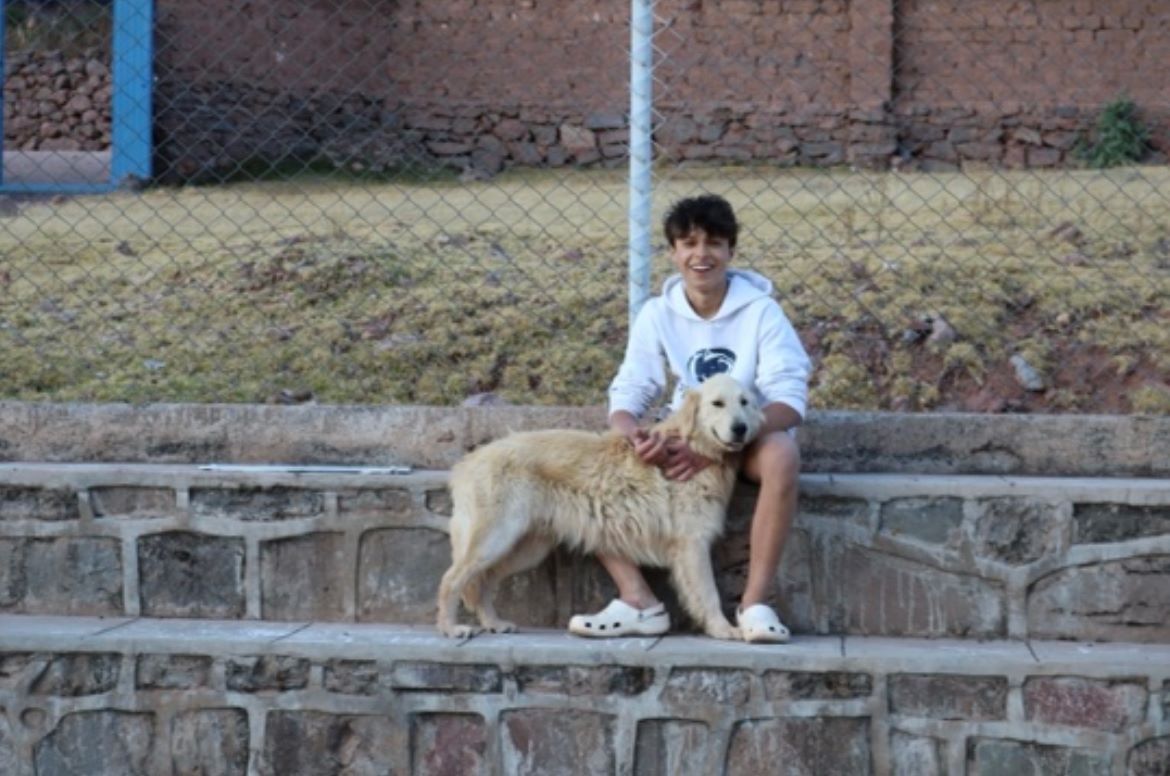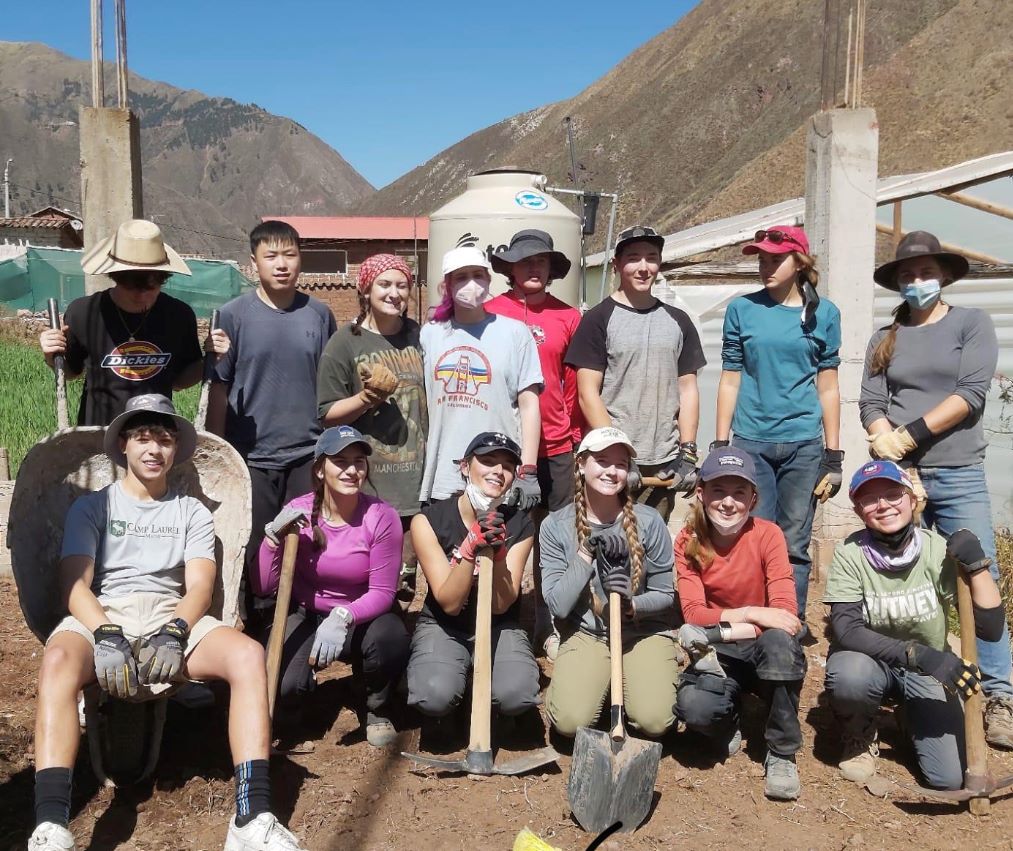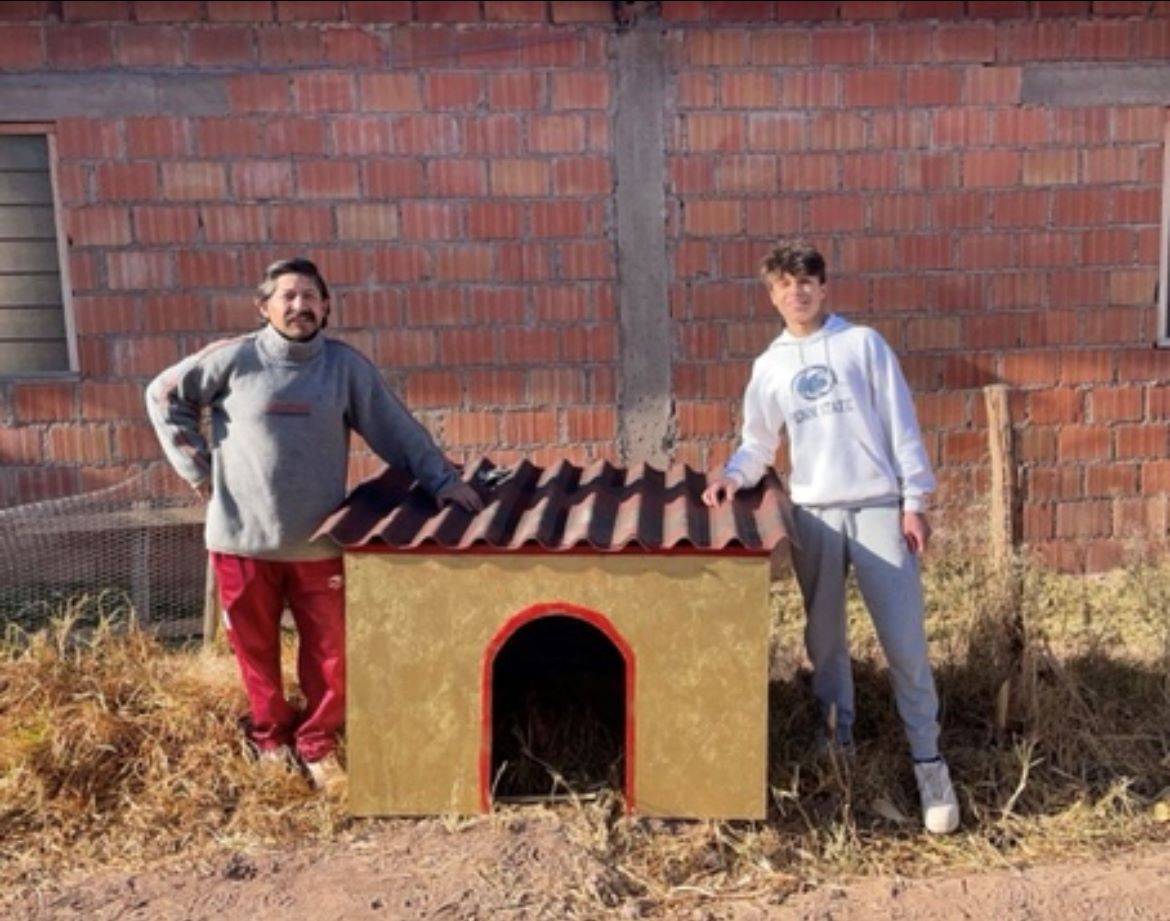
Robbie is an alum of our Service Peru program and wrote about the experience for his college essay, focusing on five specific words and how they elucidate the introduction to different ways of living.
* * *
Pachamama, papas, bien, frío, intipunku: Five words—two Incan, three Spanish—that, a year ago, would have meant nothing to me. Now, however, they are the time machine that takes me back to Peru—the most cherished experience of my life.
The first time I heard pachamama, I stood alongside a cliff, gazing at the Pisac (p’isaqaq) ruins just an hour north of the Incan capital of Cusco. Our 18-person group had arrived in Peru just the day before, and we were listening to our guide explain the importance of this religious estate, its inhabitants’ cultivation methods, and the Incas’ deep connection to Earth—or, as he called it, pachamama. I would learn that the significance of pachamama parallels our understanding of “Mother Earth”—the source of life. I assimilated the meaning almost instantly, because it was the one of reasons I had come to Peru in the first place: To explore the natural splendor of the Andes mountains and learn about ways of living different from my own.

One way Peruvians praise pachamama is by making golden offerings in the shapes of their beloved foods. And one offering that is always present is a papa, or a potato. Papas were—and still are—a staple of the Peruvian diet; in fact, the indigenous peoples of Peru were the first in human history to grow them. I ate potatoes at every meal—sometimes they came crunchy and dusted with spices; other times they floated among vegetables and meat in a tasty soup. Experiencing flavors I never had before, I came to love papas as much as any Peruvian.
Along with papas, another word I encountered every day was bien, typically in the form of the question ¿estás bien? I learned to respond estoy bien—one of the first Spanish phrases I picked up on the trip. Several times throughout the working day, as I made cement or laid brick, John or Diego—our hosts and occupational carpenters—would approach me and ask ¿estás bien? to make sure everything was OK. Though I had no knowledge of Spanish, through inference, I was able to take the small phrases and combine them to communicate with native Spanish speakers, enabling me to form strong bonds with the local children and our hosts.
Not only would I use ¿estás bien? with the townspeople, I would use it with my best friend: a community dog named Chiquito. After seeing him outside at night in the 30-degree weather—mucho frío, as the townspeople put it—I knew what I would undertake for my personal project: a community dog house. Though my carpentry skills were minimal, I managed to make a serviceable shelter for multiple dogs using plywood planks and adobe. It’s comforting to know Chiquito has a warm and dry place to sleep on those frigid Andes nights.

The culmination of the trip was our visit to Machu Picchu. Carrying all of our belongings, we deboarded a train in the middle of the tracks and set out on the 8 mile hike to the ruin. Throughout the uphill climb, I admired the beauty of the Andes and the path carved into the mountain hundreds of years ago. At the top of the “monkey stairs,” we came to a stone arch: intipunku, or the “sun gates,” from which we looked down onto the ancient city of Machu Picchu. Legend has it that intipunku got its name because, every winter solstice, the sun shines directly through the arch and straight into the sun temple, where a spiritual ceremony would be held. This perfection of architecture, constructed almost 700 years ago with only rudimentary tools, floored me. Taking in the majesty of the mountains, I felt a deep appreciation for Peruvians’ ancient culture and gave my own quiet thanks to pachamama for the opportunity to have experienced it.





